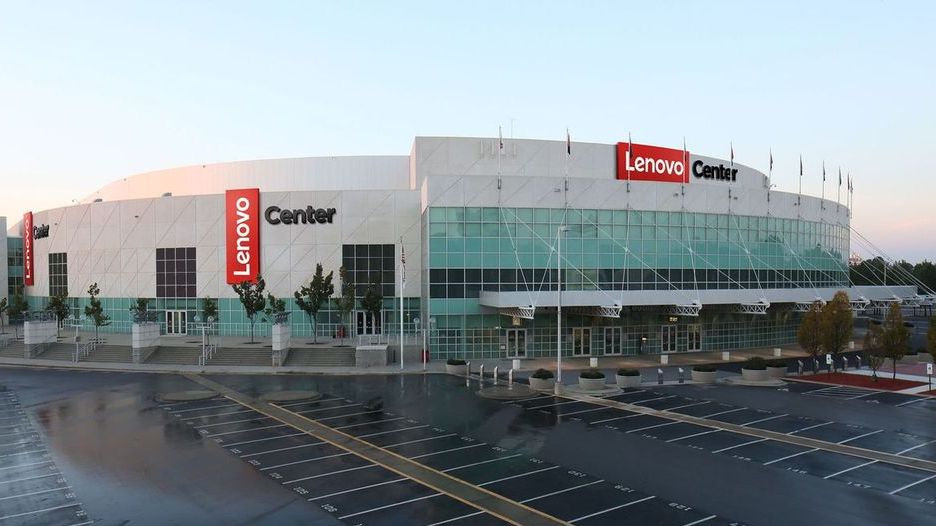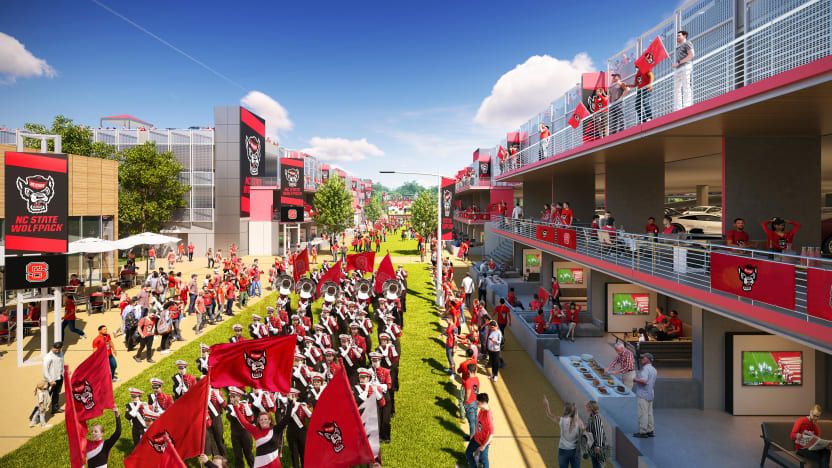Entertainment
Raleigh’s PNC Arena to become ‘Lenovo Center’ with new entertainment district

The PNC Arena, home to the Carolina Hurricanes and N.C. State Basketball, is getting a new name. In September, the arena will be renamed the “Lenovo Center,” Hurricanes Holdings CEO Brian Fork said Thursday.
With the new name, developers also announced a new project to develop a new entertainment district around the arena, which sits off Wade Avenue in west Raleigh. The $1 billion project will redevelop 80 acres around the arena.
“We are committed to bringing new amenities to fans and creating experiences that bring more people to the arena and stadium area and encourage them to visit early, eat, and even stay over on-site. This development is the next step toward building the premier sports and entertainment district in the country and keeping the area a regional economic driver for decades to come,” Fork said.
The $1 billion plan is for a sports and entertainment complex on 80 acres around the arena. (Courtesy Carolina Hurricanes)
The $158 million arena opened for business in October 1999 as the Raleigh Entertainment and Sports Arena, leaders said. The building became the RBC Center in 2002 and was renamed PNC Arena after PNC Bank’s acquisition of RBC in 2012, according to a press release detailing the name change. The facility is operated by the Carolina Hurricanes/Gale Force Sports & Entertainment.
The Centennial Authority, a governing body created by the N.C. General Assembly, owns the arena building and the surrounding 80 acres, according to the PNC website. The ownership is in part due to a grant from the State of North Carolina.
The first phase of development around the arena includes “200,000 square feet of entertainment and lifestyle retail, 150,000 square feet of office space, a 150-key hotel and more than 500 apartments,” according to the Carolina Hurricanes.
The entertainment areas will be close to the arena and Carter-Finley Stadium. More buildings for offices and housing are planned closer to Edwards Mill Road, according to a news release detailing the plans.
Development of the first phase is planned to begin in December 2025. It will include a “promenade” area with suites for tailgating, along with a five-acre space for more traditional tailgating, according to the release.
“After more than two decades, we are fulfilling the creation of a world-class destination that our local and state partners expected when the arena was opened in 1999,” said Philip Isley, chair of the Centennial Authority. “This proposed development ensures that our Arena renovations will be enhanced by building this transformational sports and entertainment district to ensure our Arena remains a regional attraction and economic catalyst for many decades to come.”
Centennial Authority approved the agreement between Lenovo and the Carolina Hurricanes to rename the arena. The agreement will run for 10 years, through the 2033-34 National Hockey League Season.

The first phase of the development includes a promenade with tailgating suites and balconies. (Courtesy Carolina Hurricanes)
“Lenovo has been a valued partner of ours for many years,” Fork said. “We’re thrilled to elevate that partnership now by renaming the arena Lenovo Center. Lenovo has both strong local ties and a worldwide footprint, and we’re proud to have the Hurricanes’ name associated with a true leader in global technology.”
The arena hosts over 1.5 million guests annually, according to the release. The arena holds more than 150 events each year, including concert tours and family shows in addition to sports.
“As we transition to this new era, we are grateful for our longtime naming rights collaborator, PNC, who will continue to be a major partner of our organization,” Fork said.
According to PNC’s website, the 700,000 square-foot arena can seat up to 20,000 people. The arena has three concourses, 51 suites and seven loge boxes.
“PNC Arena has continually offered Raleigh, the Triangle, and the southeast an abundance of sports, major concert tours, and events year after year,” leaders with PNC said. “Studies have shown the arena’s economic impact to be greater than $200 million a year.”









